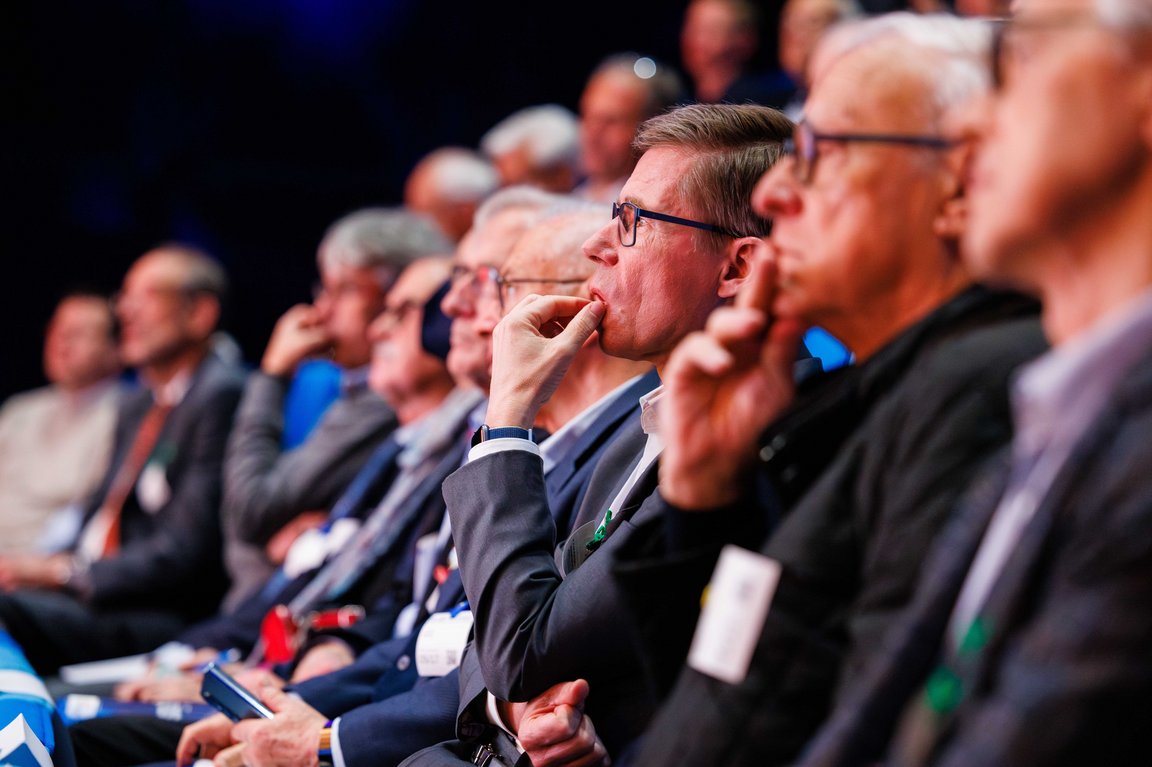Translated with DeepL
Switzerland has hardly invested any money in its energy infrastructure for thirty years. And now that, among other things, much less gas is flowing from Russia to Europe, massive supply problems are looming in winter. In this situation, we must not ignore any technology, demands Joël Mesot, President of ETH Zurich. "Switzerland must set framework conditions that enable progress."
He and National Councillor Roger Nordmann have a difference of opinion, and a huge one at that. The SP parliamentary group president warns against investing in nuclear power plants. Not only are they unreliable, as the outages in France last winter showed. Nor could they help to avert the impending electricity shortage in the coming years. Mesot and Nordmann even agree on this one point: it would take decades to build a nuclear power plant.
At its annual congress, the SATW was able to organise two panels with influential personalities and the discussions were correspondingly lively and sometimes controversial. In view of the current challenges, the SATW has made security of supply and technical sovereignty its theme for the year and placed it at the centre of the congress and the two panel discussions - one focused on the topic of energy, the other on data and artificial intelligence (AI).
"Security of supply deserves a strategy, it must not remain wishful thinking," demanded SATW President Benoît Dubuis. He said this in front of a full hall - the annual congress at Google Switzerland in Zurich was fully booked with 280 guests.

The fact that Switzerland will also have to worry about its energy supply in the coming winters is not only due to a lack of investment, as Joël Mesot, President of ETH Zurich, points out. Switzerland has neither an electricity agreement nor a framework agreement with the EU. And the negotiating table is empty.
Not an easy starting point. The Swiss electricity supply is connected to neighbouring countries by 41 lines, which strengthens security of supply in Switzerland and Europe, says Swissgrid CEO Yves Zumwald.
SBB shows that it is possible to secure the energy supply and remain independent, as its CEO Vincent Ducrot explains. "We don't travel far without electricity." This is why the Federal Railways did not rely on electricity always being available, but built its own hydroelectric power plants. Today, they produce 90 per cent of the energy they need themselves.
And what can Switzerland do in the current situation? In the short term, one thing in particular will help: saving electricity. "That is the most effective lever," says Antje Kanngiesser, CEO of electricity producer Alpiq. The savings potential is huge. However, technical innovations have been underutilised to date - because electricity was too cheap.
Technical innovations should also help to make the energy supply safer and more sustainable in the longer term. According to Joël Mesot, researchers at technical universities are experimenting with how green hydrogen can be produced, for example. Wind and solar power should also contribute to energy security. However, there was a consensus on the podium that for this to happen, the population must be in favour of changing the natural landscape.

The shortcomings are quickly identified on the second podium, and even without any counter-speech: Switzerland is not as advanced as it could - and should - be in the field of artificial intelligence. "Although we have cutting-edge technologies, we are not in a position to implement the findings and produce these technologies ourselves," criticises Judith Bellaiche, GLP National Councillor and Managing Director of the Swiss Digital Industry Association (SWICO). Take Chat GPT, for example: "This technology could have been developed in Switzerland. We would have had the skills for it."
Switzerland, adds Swisscom CEO Christoph Aeschlimann, has so far failed to create global companies in the field of future technologies. There are Swiss banks and pharmaceutical companies that are among the global market leaders, but none in the IT, energy or semiconductor industries.
The panel discussion on "How technically sovereign does Switzerland need to be in AI?" centred on these failings from the outset. "We are dependent on good quality data," SATW Secretary General Esther Koller said in her opening remarks. It is needed to train AI and for a certain degree of technical sovereignty. "We at SATW are therefore committed to ensuring that we have access to high-quality data."
Another point was made by SVP Federal Councillor Guy Parmelin in his welcome address between the two panels: Society must also be convinced of the new technologies. However, this can only be achieved if not only the opportunities but also the risks are recognised and good solutions are developed. As host Anton Aschwanden, Head of Government Affairs at Google Switzerland, said, there is a particular need for action when it comes to artificial intelligence. AI is too important not to regulate it. However, it should also not be so heavily regulated that society no longer benefits from useful applications.

"Switzerland should actually have mastered such a key technology," says Christoph Aeschlimann on the podium. But although it is in a hurry, it is not yet ready: as he says, being two months ahead in AI is the same as being a hundred years ahead in earlier technologies. If you are not at the forefront, you are at a structural disadvantage that can no longer be compensated for.
But what can Switzerland do to get to the top, asked presenter Reto Brennwald. For Aeschlimann, one thing is clear: more venture capital is needed. It needs to grow from the current CHF 10 billion to CHF 50 billion by 2030. This money forms a bridge from research and development to commercialisation. And: "If you have more capital, you can scale faster."
Other panellists set the priorities differently. "More money is not enough, we also need talent," says Alexander Ilic, Director of the ETH AI Centre. And also talent from abroad. "With a fertility rate of 1.5 per cent, we can't do it alone," says National Councillor Bellaiche.
So where should we start? Switzerland should play to its strengths in a more targeted way, advises Green National Councillor Gerhard Andrey, for example with its high density of AI at universities, its very intact cybersecurity scene and its recognised diplomacy. Andrey believes that AI governance, for example, is a huge opportunity for Switzerland: "It allows it to use its resources where it can make a difference."